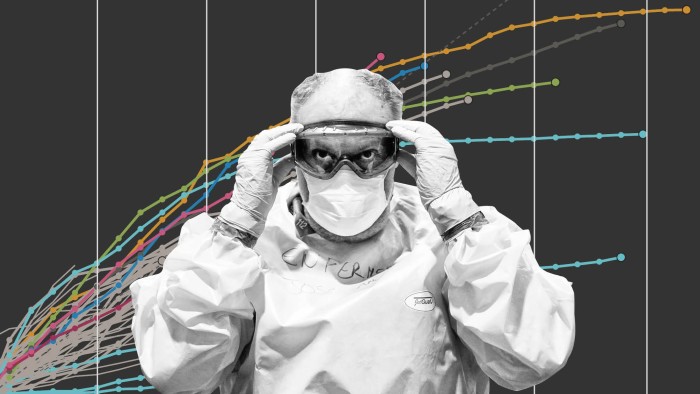Vaccine news boosts UK economic outlook, says BoE chief economist

Roula Khalaf, Editor of the FT, selects her favourite stories in this weekly newsletter.
Breakthroughs in developing coronavirus vaccines have made the UK’s economic outlook brighter than the Bank of England forecast earlier this month, according to its chief economist.
In evidence to the House of Commons Treasury select committee on Monday, Andy Haldane took a more positive view than colleagues on the bank’s monetary policy committee, saying his personal view was that the vaccine news had already helped to boost confidence, which should in time lead to a pick-up in economic activity.
On balance, he said, the news was “to the positive side” of the assumptions that underpinned the BoE’s latest forecasts.
At the end of the third quarter the UK economy was 9.7 per cent smaller than it was in final three months of 2019. The Monetary Policy Committee said last month that it expected UK output to shrink again in the fourth quarter of 2020, remain “materially lower” than its 2019 level in the first quarter of 2021, and then recover slowly to regain pre-pandemic levels in 2022. It had made a broad assumption that improved treatments for the virus would be phased in over the course of next year.
Mr Haldane said he had felt “that if anything, people were a little too fearful of the future”, damping their willingness to spend — and the vaccine news could offset “some of that excess caution and excess gloom”. Meanwhile, for businesses, the prospect of an end to the “stop-go cycle” of lockdown measures could make “all the difference in the world . . . between viability and non-viability”.
Andrew Bailey, the BoE governor, struck a more cautious note, however. He said that as further news came through on the rollout of a vaccine, it would help to reduce uncertainty — but that people would still need assurance on the logistics of manufacturing, transporting and delivering the inoculation.
Silvana Tenreyro, an external MPC member, also cautioned that despite the medical advances, “for the next few months the virus is still here” — and this would mean weak spending and employment. “The near term is still looking difficult,” she said.
Policymakers also underlined the risk that UK businesses might remain unwilling to invest — as they have been for years — even once the twin uncertainties of Covid-19 and Brexit began to lift.
Latest coronavirus news

Follow FT's live coverage and analysis of the global pandemic and the rapidly evolving economic crisis here.
Michael Saunders, another external MPC member, said that after this year’s unprecedented plunge in gross domestic product, many companies would in future try to hold more liquid assets, and be more cautious about investment and hiring.
“It is clear that business investment has been the single missing ingredient from the recovery so far,” Mr Haldane said. But he argued that even with the current uncertainty over future demand, business could make some “no regrets” investments already, in digital infrastructure and in greening their business.
“There would be great virtue . . . as a way of adding some further strength to the recovery, if ways could be found to create incentives to bring forward those no regrets investments,” he said.
Mr Bailey also told MPs that the BoE was assuming there had been a leak of this month’s decision by the MPC to expand its quantitative easing programme — which was reported by the Sun hours before the announcement.
Markets had been betting in the run-up to the decision that the BoE would opt for a bigger injection of monetary stimulus — because of the spread of coronavirus cases and the announcement of new lockdown measures — but the Sun’s report could not be dismissed as speculation, he said. “What we have to assume is that it was a leak and we therefore have to try to get to the bottom of it.” he said.
Comments